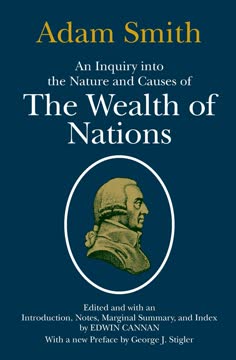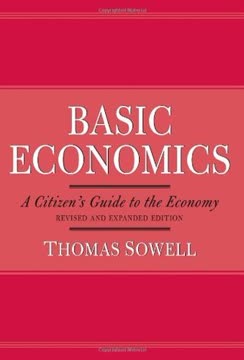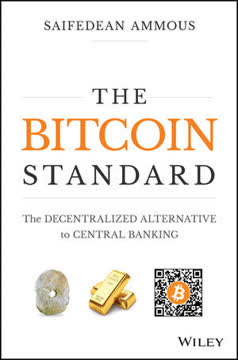Key Takeaways
1. Human Action is Purposeful and Rational
Action is will put into operation and transformed into an agency, is aiming at ends and goals, is the ego's meaningful response to stimuli and to the conditions of its environment.
Intentional Human Behavior. Human action is fundamentally different from animal reactions or unconscious processes. Every action represents a conscious choice to improve one's condition, driven by an understanding of potential cause and effect relationships.
Characteristics of Human Action:
- Always goal-oriented
- Involves deliberate choice
- Seeks to reduce uneasiness
- Requires rational assessment of means and ends
- Unique to human consciousness
Rational Decision-Making. Humans don't merely react to stimuli but strategically evaluate potential outcomes, selecting actions they believe will most effectively achieve their desired goals. This distinguishes human action from instinctive animal behavior.
2. Economics is the Science of Human Choices
Economics is the youngest of all sciences, opening to human science a domain previously inaccessible and never thought of.
Understanding Human Decision-Making. Economics is not merely about money, but a comprehensive study of how individuals make choices under conditions of scarcity, seeking to maximize satisfaction and minimize uneasiness.
Key Economic Principles:
- Choices involve trade-offs
- Resources are limited
- Individuals act to improve their condition
- Value is subjective
- Prices emerge from individual preferences
Broader Significance. Economics provides insights into human behavior beyond traditional financial analysis, revealing how people allocate scarce resources and make strategic decisions in complex social environments.
3. Division of Labor Creates Social Cooperation
Society is concerted action, cooperation. Society is the outcome of conscious and purposeful behavior.
Cooperative Social Evolution. Human civilization emerged not through conflict, but through recognizing the mutual benefits of specialization and exchange. Division of labor allows individuals to focus on specific skills, increasing overall productivity.
Advantages of Cooperation:
- Increased economic efficiency
- Mutual benefit for participants
- Expanded capabilities beyond individual limitations
- Peaceful interaction between different groups
- Continuous technological and social improvement
Fundamental Social Mechanism. Cooperation transforms potential competitors into collaborators, creating complex social systems that enable unprecedented levels of human achievement and prosperity.
4. Uncertainty is Fundamental to Human Action
The uncertainty of the future is already implied in the very notion of action. That man acts and that the future is uncertain are by no means two independent matters.
Inherent Unpredictability. Human action always involves navigating uncertain future conditions, requiring constant adaptation and strategic planning based on incomplete information.
Uncertainty Characteristics:
- Cannot be completely eliminated
- Drives human creativity
- Motivates strategic thinking
- Requires constant reassessment
- Distinguishes action from mechanical processes
Decision-Making Under Complexity. Humans develop strategies to manage uncertainty, using reason, experience, and probabilistic thinking to make the best possible choices in inherently unpredictable environments.
5. Ideologies Shape Social Interactions
Ideologies are the totality of our doctrines concerning individual conduct and social relations.
Conceptual Frameworks. Ideologies provide mental models that guide human behavior, helping individuals interpret complex social realities and make sense of their interactions with others.
Ideology's Social Functions:
- Provide shared understanding
- Coordinate collective action
- Interpret world events
- Motivate social change
- Create group identity
Dynamic Social Evolution. Ideologies are not static but continuously evolve through rational discourse, technological changes, and shifting human experiences.
6. Market Exchange Enables Complex Cooperation
Interpersonal exchange of goods and services weaves the bond which unites men into society.
Voluntary Interaction. Market exchanges represent more than economic transactions; they are fundamental mechanisms of peaceful social cooperation that transcend traditional boundaries.
Market Exchange Principles:
- Mutually beneficial interactions
- Peaceful conflict resolution
- Information transmission
- Decentralized coordination
- Spontaneous order emergence
Social Coordination Mechanism. Markets enable individuals with diverse backgrounds and interests to cooperate effectively without centralized control.
7. Calculation is Essential for Economic Progress
Economic calculation is the fundamental issue in the comprehension of all problems commonly called economic.
Rational Resource Allocation. Economic calculation allows societies to efficiently distribute resources, compare different production strategies, and make complex economic decisions.
Calculation's Key Functions:
- Compare alternative strategies
- Evaluate opportunity costs
- Assess resource effectiveness
- Enable long-term planning
- Facilitate technological innovation
Intellectual Foundation. The ability to calculate creates a framework for understanding and improving economic systems beyond intuitive approaches.
8. Freedom Requires Understanding Economic Principles
Liberalism is a political doctrine based upon the teachings of utilitarian ethics and economics.
Intellectual Liberation. Understanding economic principles provides the intellectual foundation for maintaining individual freedoms and creating cooperative social systems.
Freedom's Economic Prerequisites:
- Voluntary cooperation
- Protection of individual rights
- Transparent information exchange
- Minimal coercive interference
- Respect for personal choices
Rational Social Organization. Economic knowledge enables creating social systems that maximize individual potential while maintaining collective harmony.
9. Reason is Humanity's Defining Characteristic
Reason is man's particular and characteristic feature.
Cognitive Uniqueness. Human reason distinguishes us from other species, enabling complex problem-solving, abstract thinking, and voluntary behavior.
Reason's Capabilities:
- Transform sensory information
- Create conceptual frameworks
- Plan future actions
- Learn from experience
- Develop technological innovations
Evolutionary Advantage. Reason allows humans to transcend immediate biological limitations, creating unprecedented levels of adaptation and achievement.
10. Social Systems Evolve Through Voluntary Cooperation
Society is nothing but the combination of individuals for cooperative effort.
Spontaneous Social Order. Complex social systems emerge not through top-down design but through countless individual interactions seeking mutual benefit.
Cooperation's Evolutionary Dynamics:
- Peaceful interaction preferred
- Mutual benefit drives engagement
- Continuous adaptation
- Decentralized coordination
- Emergent complexity
Social Transformation. Understanding how voluntary cooperation generates social progress provides insights into human potential and societal development.
Last updated:
FAQ
What's Human Action: A Treatise on Economics about?
- Comprehensive Economic Treatise: Human Action by Ludwig von Mises is a detailed exploration of economics, focusing on human behavior and decision-making in economic contexts.
- Praxeology as Core Concept: The book introduces praxeology, the study of human action, as the foundation of economic science, emphasizing the subjective nature of value and decision-making.
- Critique of Socialism and Interventionism: Mises critiques socialist economic systems and government intervention, arguing that they disrupt market processes and lead to inefficiencies.
Why should I read Human Action: A Treatise on Economics?
- Influential Economic Philosophy: This book is a cornerstone of Austrian economics and has significantly influenced free-market thought and contemporary economic debates.
- Foundation of Free Market Principles: Mises defends capitalism and free markets, making a compelling case for their superiority over socialism and interventionism.
- Timeless Relevance: Despite being published in 1949, the themes and arguments remain pertinent today, addressing issues of government control and individual rights.
What are the key takeaways of Human Action: A Treatise on Economics?
- Human Action is Purposeful: Mises emphasizes that all human action is purposeful and aimed at alleviating uneasiness, forming the basis of his economic framework.
- Subjective Value and Prices: The book argues that value is subjective and prices emerge from individual actions, serving as signals in a market economy.
- Critique of Socialism: Mises asserts that socialism is flawed due to its inability to perform economic calculation without market prices.
What is praxeology in Human Action: A Treatise on Economics?
- Study of Human Action: Praxeology is defined as the science of human action, focusing on the logical implications of purposeful behavior.
- A Priori Knowledge: Mises asserts that praxeological principles are derived from logical reasoning rather than empirical observation.
- Universal Application: The principles of praxeology apply universally to all human actions, providing a framework for understanding decision-making.
How does Ludwig von Mises critique socialism in Human Action: A Treatise on Economics?
- Impossibility of Economic Calculation: Mises argues that socialism cannot perform rational economic calculation due to the absence of market prices.
- Historical Failures: He provides historical examples of failed socialist experiments to illustrate the practical implications of his theory.
- Moral and Ethical Considerations: Mises critiques socialism for undermining individual freedom and responsibility, leading to coercion and erosion of liberties.
What is the significance of the concept of uncertainty in Human Action: A Treatise on Economics?
- Uncertainty as Fundamental: Mises highlights that uncertainty is inherent in all human action, as the future is unpredictable.
- Impact on Decision-Making: This uncertainty influences how individuals make choices and assess risks, necessitating judgment and foresight.
- Probability in Economics: Mises distinguishes between class and case probability, emphasizing unique circumstances in economic decisions.
How does Human Action: A Treatise on Economics address the concept of time?
- Time as a Factor: Mises asserts that action is inherently temporal, involving planning for future outcomes.
- Irreversibility of Actions: He emphasizes that actions cannot be reversed, adding complexity to decision-making.
- Economization of Time: Mises discusses the necessity of economizing time, as it is a scarce resource.
What is the role of individualism in Human Action: A Treatise on Economics?
- Methodological Individualism: Mises advocates for methodological individualism, positing that all economic phenomena can be traced back to individual actions.
- Collective Action as Aggregation: While acknowledging social collectives, Mises maintains that they operate through individual actions.
- Implications for Economic Theory: This focus on individualism allows for a clearer understanding of economic dynamics, emphasizing motivations and decisions.
What is the relationship between economics and history in Human Action: A Treatise on Economics?
- Distinct but Interrelated Fields: Mises distinguishes between economics as a theoretical science and history as the study of unique events.
- Use of Ideal Types: Historians use ideal types to categorize and analyze historical phenomena, aiding in understanding motivations and actions.
- Understanding Through Economics: Economic theory provides the framework for interpreting historical events, ensuring coherence and meaning.
What is the concept of "originary interest" in Human Action: A Treatise on Economics?
- Definition of Originary Interest: Originary interest refers to the preference for present goods over future goods, reflecting inherent time preference.
- Impact on Economic Decisions: This concept influences decisions regarding saving, investment, and consumption.
- Foundation for Interest Rates: Originary interest serves as the basis for understanding how interest rates are formed, reflecting present versus future valuation.
How does Ludwig von Mises define the role of government in Human Action: A Treatise on Economics?
- Limited Government Role: Mises advocates for a minimal government role, focused on protecting property rights and maintaining order.
- Interference Leads to Inefficiency: He argues that government interventions disrupt market processes, leading to inefficiencies.
- Protection of Freedom: The government should ensure individuals have the freedom to act in their own economic interests without coercion.
What are the best quotes from Human Action: A Treatise on Economics and what do they mean?
- "Human action is purposeful behavior.": This quote encapsulates Mises's argument that all economic activity is driven by individual goals and intentions.
- "Value is the importance that acting man attaches to ultimate ends.": Reflects Mises's subjective theory of value, emphasizing personal nature of economic decisions.
- "A socialist economy is incapable of rational economic calculation.": Summarizes Mises's critique of socialism, arguing for the necessity of capitalism.
Review Summary
Human Action is considered a seminal work in economics, particularly for free-market capitalism. Readers praise Mises' logical approach and comprehensive analysis, though some find it dogmatic and outdated. The book is challenging but rewarding, offering insights into human behavior and economic principles. Critics argue it lacks empirical evidence and oversimplifies complex issues. Supporters view it as a powerful defense of liberty and free markets, while detractors see it as ideologically biased. Despite its age, many find it relevant to understanding modern economic issues.
Similar Books










Download PDF
Download EPUB
.epub digital book format is ideal for reading ebooks on phones, tablets, and e-readers.









